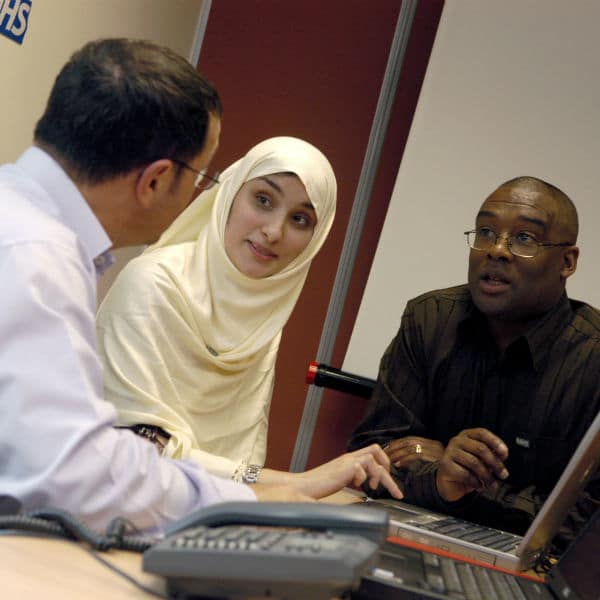Description
During this course, you will learn how to communicate and provide appropriate support to patients and their families. There will opportunities to develop these essential counselling skills through the use of role play in theoretical and practical sessions. The course also explores the importance of recording a family history and ways to communicate pathogenic and/or uncertain results.
Learn from leading experts in genomics about:
- Consent and what it means in relation to genomic testing.
- The ethical and social implications of genomic testing.
- How to record and interpret a family history, recognising what is or may be relevant.
- How to verify personal and family history information, taking into consideration issues such as consent, confidentiality and access to records.
- Different purposes of genomic testing.
- Approaches to prenatal testing, pre-implantation testing (PGD) and pre-conception carrier screening.
- Strategies to approach lifelong patient management of whole genome information.
- Managing and explaining complex genome results.
- Sources for patient support, including support groups, online information and other resources.
- Written communication skills; for example how to design clear, comprehensive information for a patient.
Learning outcomes
By the end of this module you will be able to:
- Justify the importance and application of informed consent in the field of genomic medicine generally.
- Explain the different purposes of genomic testing in patients with rare inherited diseases, cancer and infectious diseases.
- Discuss the concepts of genetic and genomic predispositions to illnesses.
- Explain genomic results in terms of diagnosis prediction and uncertainty.
- Evaluate and apply the skills necessary to support individuals who have genomic results that affect their care.
- Discuss the consequences of genomic test results for the patient and their family, including findings that draw on the published evidence base and personal experiences of patients, carers and the wider family.
- Evaluate and apply the communication and counselling skills needed to engage and communicate effectively in a compassionate manner with patients, carers and wider family.
- Critically evaluate current and potential future ethical, legal and social issues of genome testing and whole genome sequencing.













